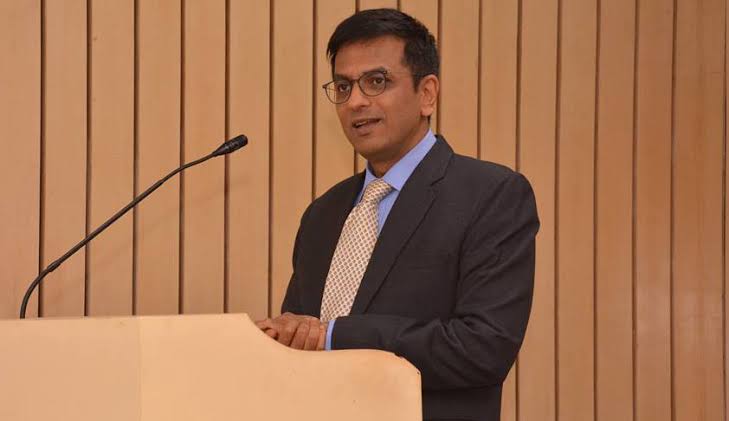SC judge bats for independence of judiciary, greater accountability

Justice DY Chandrachud was speaking at a book launch in the capital, How to Save a Constitutional Democracy’ by Professor Tom Ginsburg and Aziz Z Huq at the University of Chicago’s Delhi Centre. Known for his clarity on issues of basic democratic freedoms, Supreme Court Justice DY Chandrachud turned the spotlight on the challenges facing the Indian judicial system and noted that there was a need for more nuance on how to resolve the situation of a judge’s “wrongful behaviour”. Stating that the system as it is right now, allows for only two possibilities — to impeach or to transfer — Chandrachud called for a “more balanced and nuanced mechanism” to make judges more accountable.
The discussion may be viewed here.
Arguing for a more nuanced approach, he said that while the Indian Constitution speaks of “only” of the two possibilities, “impeachment is not necessarily an answer in every situation you can think of regarding judicial demeanor”. Democratic erosion does not happen in one sweep, but slowly, says DY Chandrachud: SC judge bats for independence of judiciary, transfer of judges.
“Similarly, transferring a judge is no solution, for a judge who has a problem in a place where she or he is posted,” he added. Chandrachud, has been a significant voice in several landmark judgments last year. In the judgment on the validity and extent of one of the Centre’s flagship programmes, the Aadhar database, in 2018, Chandrachud wrote the only dissenting note in which he held that it could be used as an “instrument to turn India into a surveillance state”. Another important stand was in ordering setting up of a Supreme Court-monitored SIT to probe the Bhima Koregaon case related to arrest of five rights activists.
‘Dissent is the safety valve in a democracy; the pressure cooker will burst if you try to muzzle it’ and ‘Liberty cannot be sacrificed at the altar of conjecture (of police or authorities)’ was one of his oft-quoted phrases. Chandrachud, the son of a former judge Justice VY Chandrachud, has gained a reputation for his “lucidly written” judgments.
In Tuesday’s event, he also made observations regarding the independence of the judiciary and what the framework should be to “insulate the judiciary from wanton attacks on its institutional integrity”. “It is important to understand that you need to trust your judges, you need to trust your courts, because if that element of trust towards the judges and the courts disappears, I think there is a serious problem we are going to have in the democratic set-up itself.”
Chandrachud also said that the debate around federalism has “progressively sharpened”. He said, “Democratic erosion does not take place in one sweep but happens slowly. Small instances, when left unguarded, pose a threat to constitutional democracy. Judges have to look at how these small aspects are implemented.”
Batting for unconventional means to deal with vacancies in the judiciary, Chandrchud asserted the benefits of appointing “ad hoc judges” in the high courts. “I see no reason to not appoint ad hoc judges in high courts with large vacancies. Even the Supreme Court had three ad hoc judges when the Kesavananda Bharati case was being heard to take care of day-to-day work of the court since 13 judges were hearing that case for months,” he said.
